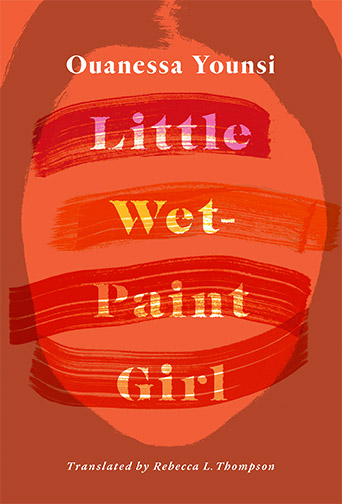The Metabolism of Desire The Poetry of Guido Cavalcanti
Guido Cavalcanti, translated by David R. Slavitt

Among tall grass and wasps, I didn’t know the wind was an hourglass. My innocence amused the woman next door. Her delight planted watermelons, pink mouthfuls amidst famine. We rescued different species, different riddles:
Why does September make you thirsty?
Once born, who stays behind?
The neighbor woman was a theater.
We grew older, and I lost her by losing myself.
Born to a French-Canadian mother and Algerian father, Ouanessa Younsi is a bold and unique voice in modern Francophone poetry. In this intensely personal recitation on identity and ethnicity, Younsi takes the reader on a surreal odyssey through a liminal world of belonging and unbelonging, absence and presence, mind and body. Her visionary work, first published in French and translated here by Rebecca Thompson, is unsettling, riveting and guaranteed to leave readers contemplating the existential mysteries of “self.”
Little Wet-Paint Girl unfolds as scenes from a waking fever dream. Unreality and reality blend; images of dismemberment, harm, transformation haunt the narrator’s search. Themes of longing for belonging, searching for identity, safe home from a voice with Algerian roots on Montréal soil. Younsi’s voice is distinctive and strong and she approaches themes of rootedness, family, dispossession and race in a visceral and contemporary way.
Sonnet L’Abbé
In Little Wet-Paint Girl, Younsi explores the mysteries of identity, existence, and the porous contours of the thing we call ‘self,’ in a most original and profoundly moving way. Elements of the uncanny, fantastic, grotesque, absurdist, surreal, and gothic combine into a visionary work that is both unsettling and riveting in the alternate world it establishes. Breathtaking, emotionally complex, precise.
Christine Wiesenthal
A metaphorical and imagistic exposition of identity, a mapping of the tug of war of self-discovery and self-definition that characterizes humans in general, and biracial or bicultural people and immigrants more particularly.
—Katia Grubisic, The Fiddlehead
This work is licensed under a Creative Commons License (CC BY-NC-ND 4.0). It may be reproduced for non-commercial purposes, provided that the original author is credited.